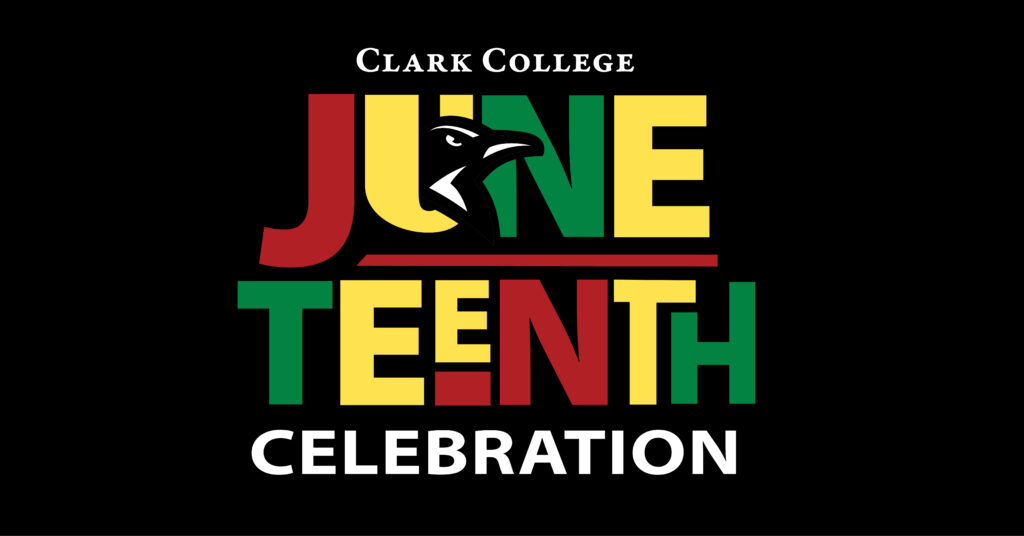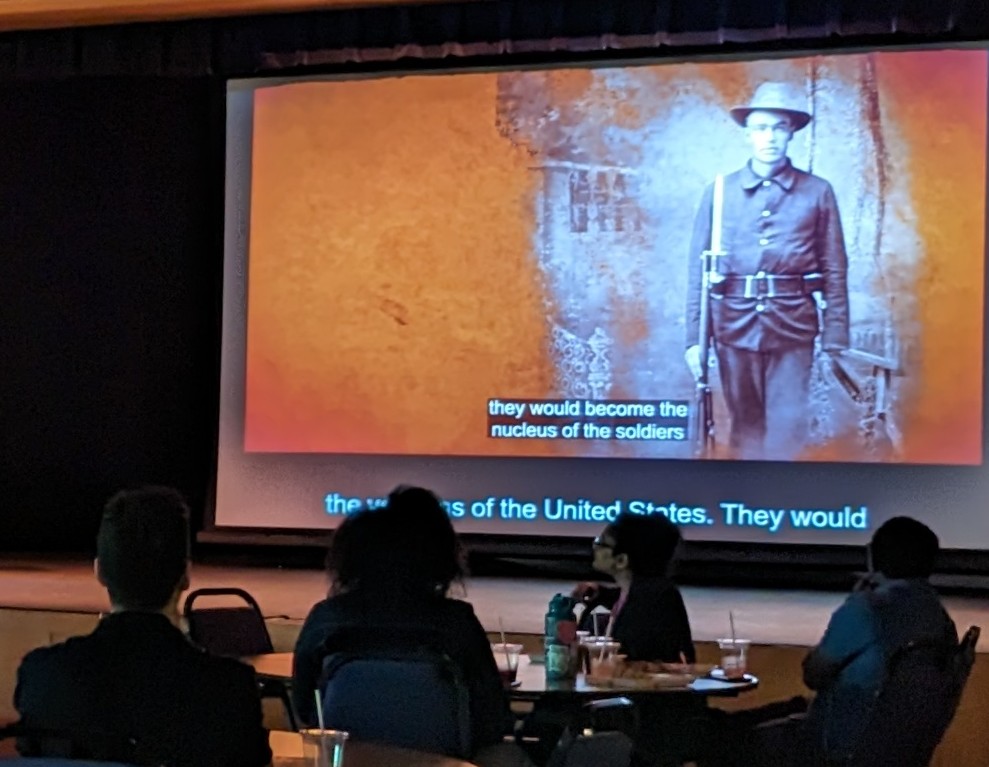Honoring the emancipation of Black enslaved people

Clark College celebrated Juneteenth on June 6 by gathering during lunchtime for barbecue, screening of a film, and celebrating community. The event was organized and sponsored by the college’s Office of Diversity, Equity & Inclusion and culinary programs.
From its Galveston, Texas origin, Juneteenth is a federal and a state holiday celebrated on June 19 to commemorate the emancipation of enslaved people in the U.S. Celebrations take place across the U.S. and beyond with focus on community and family gatherings, reflection, cuisine, and continued solidarity toward social justice. Clark College celebrated Juneteenth early on June 6 to accommodate academic and holiday schedules as well as to uplift the broader community Juneteenth Freedom Celebration, which Clark College will be involved in.
Clark College’s Juneteenth celebration was a free event open to all students, employees and community members, and included:
- Food prepared by Chef Earl Frederick, Culinary Arts Professor in the Tod and Maxine McClaskey Culinary Institute at Clark College, and cuisine staff and students. Chef Earl and crew served up marinated pork loin, coho salmon, Cajun shrimp, chicken thighs, braised greens, Southern-style cornbread, sweet tea, sorrel punch, mini red velvet cupcakes, pecan pie, and more— at no cost to diners.
- Screening of the film Buffalo Soldiers: Fighting on Two Fronts presented by Dru Holley, the film’s director and producer. The film details the role played by Black soldiers throughout U.S. history. Premiering this summer in honor of Juneteenth, the film will air on PBS on June 12 and on World Channel on June 19 (Juneteenth).
Cuisine instructor Earl Frederick said, “Barbecue is recognized as a Black contribution to American culture. It was slaves who passed through the Caribbean, cooking animals over pits on sticks. This style of cooking called barbacoa translates now into what we know as Southern barbecue. They also picked up seeds from hot peppers in the Caribbean, which became an important flavoring for the pork in the South.”
Frederick said his maternal grandmother, a sharecropper from North Carolina, told him stories about the significance of barbecue.
“My grandmother told me that barbecue is something that Blacks and whites in the South share. When tobacco was harvested in the fall, it was all-hands-on-deck with Blacks and whites working together doing the harvest.”
Workers hung tobacco leaves in tobacco barns that have slats to let air through. To prevent spoilage, this work had to happen quickly, so a big oak fire was built to cure, dry, and smoke the tobacco. Throughout the night, workers stoked the fire, which accumulated hot coals.
Frederick explained, “The tradition developed to roast a pig using those hot coals. People dug a hole in the ground, put hot coals in the bottom of the pit, put a grate over the coals, and put a butchered pig on the grate to slowly cook the pig. Everybody—black and white—ate the pig together. Something that didn’t happen any other time.”
Clark had its first Juneteenth celebration in June 2020. President Joe Biden signed the legislation that made Juneteenth a federal holiday in June 2021, making it the 11th official federal holiday. Since 2022, Juneteenth also has been recognized as a state holiday.
What is Juneteenth?
Juneteenth (“June” plus “nineteenth”) is a federal holiday observed each year on June 19. Juneteenth was first celebrated in Texas, where on June 19, 1865, in the aftermath of the Civil War, enslaved people were declared free under the terms of the 1862 Emancipation Proclamation. Learn more at https://nmaahc.si.edu/explore/stories/historical-legacy-juneteenth. We encourage folx to research how to get involved with organizations and community events to celebrate Juneteenth and get involved in support of diversity, equity, inclusion and anti-racism.
Photos: Clark College/Vanessa Neal














